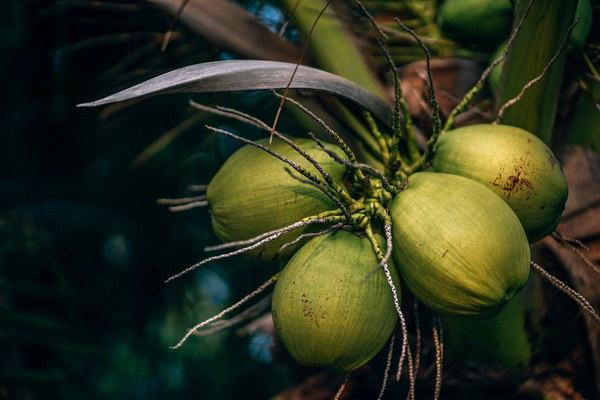Unveiling the Secrets of Almond-Removing Dampness Tea A Traditional Chinese Elixir for Modern Health
In the realm of traditional Chinese medicine, the concept of dampness is often associated with various health issues. This ancient philosophy posits that dampness can lead to discomfort and imbalance in the body. Enter almond-removing dampness tea, a time-honored beverage that promises to alleviate dampness and promote overall well-being. Let’s delve into the world of almond-removing dampness tea and discover its secrets.
Almond-removing dampness tea, also known as Xingren Qu Shi Cha in Chinese, is a blend of natural herbs and almonds that have been used for centuries to combat dampness. This tea is believed to help with conditions such as fatigue, poor digestion, and fluid retention. Its origins can be traced back to the Song Dynasty, where it was a favorite among the royal court.
The star ingredient in this tea is the almond, which is known for its nourishing properties. Almonds have been used in Chinese medicine to improve digestion, enhance the immune system, and promote healthy skin. In addition to almonds, almond-removing dampness tea typically contains other herbs like astragalus root, codonopsis, and ginger, which further contribute to its therapeutic benefits.
Here’s a closer look at the ingredients and their properties:
1. Almonds: As mentioned earlier, almonds are the cornerstone of almond-removing dampness tea. They are rich in healthy fats, protein, and fiber, making them an excellent choice for those looking to improve their digestion and overall health.
2. Astragalus Root: This herb is renowned for its immune-boosting properties. It is believed to enhance the body's resistance to infections and help maintain a healthy immune system.
3. Codonopsis: Also known as Dang Shen, this herb is prized for its ability to strengthen the body and boost energy levels. It is often used to combat fatigue and weakness.
4. Ginger: A well-known spice, ginger has anti-inflammatory and warming properties. It is believed to aid digestion, alleviate nausea, and boost the immune system.
Now that we have a better understanding of the ingredients, let’s explore how almond-removing dampness tea can benefit your health:
1. Improve Digestion: The combination of almonds and ginger in this tea helps to stimulate the digestive system, making it an excellent choice for those with bloating, gas, or constipation.

2. Boost Immune System: Astragalus root and almonds both contribute to a stronger immune system, helping your body fight off infections and maintain overall health.
3. Alleviate Dampness: Almond-removing dampness tea is designed to target dampness in the body, which can manifest as fluid retention, fatigue, and poor digestion. By eliminating dampness, this tea can help alleviate these symptoms and improve overall well-being.
4. Enhance Energy Levels: Codonopsis, one of the key ingredients, is known to boost energy levels and combat fatigue, making almond-removing dampness tea an excellent choice for those who need a natural energy boost.
To prepare almond-removing dampness tea, simply add one to two teaspoons of the tea blend to a cup of hot water and steep for about 5-10 minutes. Strain the tea and enjoy it warm or cold, depending on your preference. It’s best to drink this tea regularly, as it may take some time to see noticeable improvements in your health.
In conclusion, almond-removing dampness tea is a traditional Chinese beverage that has been used for centuries to combat dampness and promote health. With its array of natural ingredients and potential benefits, it’s no wonder that this tea remains a popular choice for those seeking a natural way to improve their well-being. So, why not give almond-removing dampness tea a try and experience the ancient wisdom of traditional Chinese medicine?









